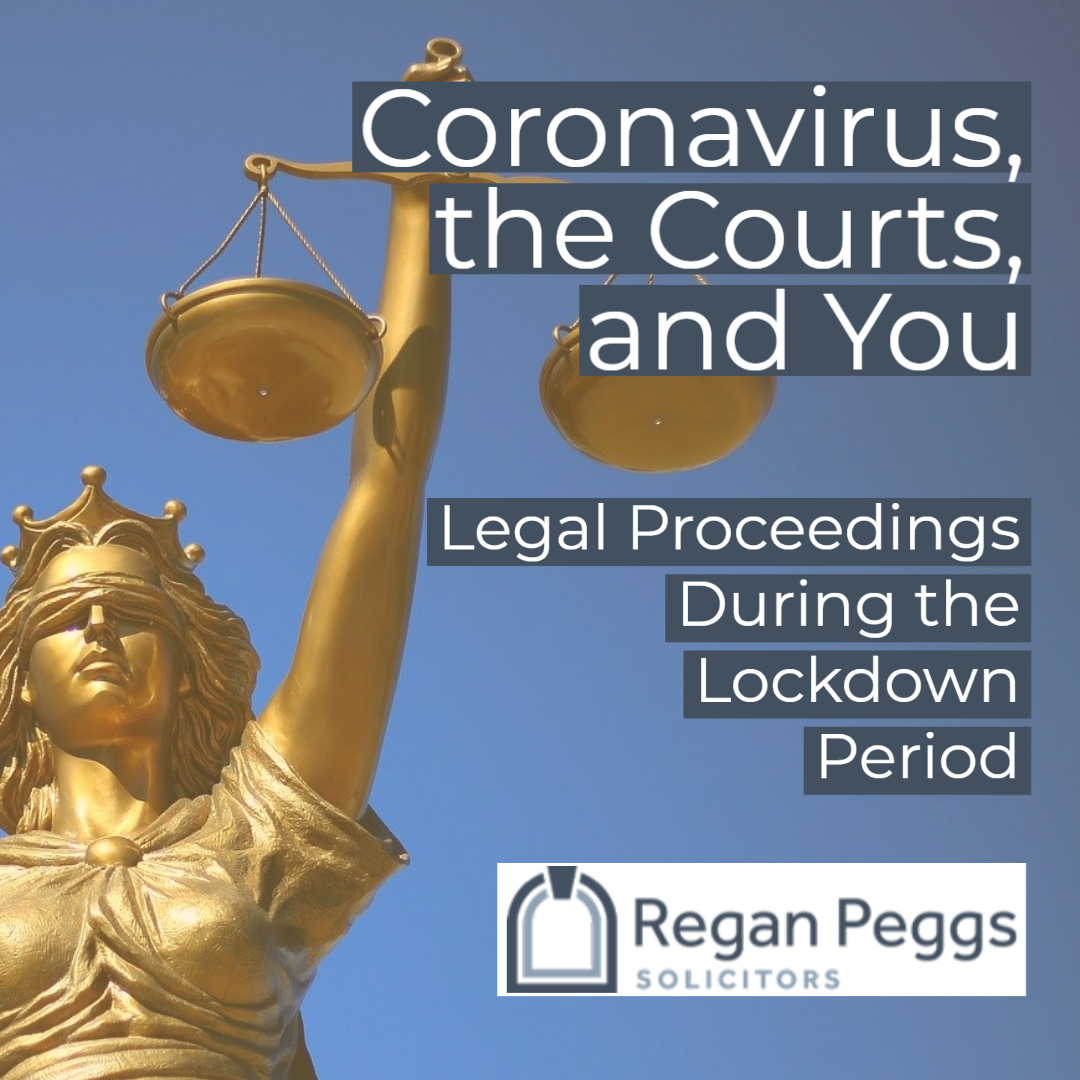How Are Court Proceedings Affected by the Coronavirus Lockdown?
On 16 April, Dominic Raab confirmed that the emergency coronavirus lockdown measures brought into force on 23 March to combat the spread of the coronavirus pandemic are set to continue for at least another three weeks. The lockdown has brought many aspects of our lives to a halt, from school exams to elective surgeries.
This disruption also affects the legal system—namely, court cases and procedures. Legal proceedings are an essential service, and many legal proceedings are subject to time limitations.
Since 23 March, the courts, like the rest of us, have been trying to adapt to the new normal. You can see exactly what measures they have taken for yourself on a webpage provided by HM Courts and Tribunals Service (HMCTS). This page updates every working day, generally around 9:00 a.m., to reflect the latest changes.
However, here’s a summary of some key points.
Court Closures During the Coronavirus Pandemic
Many courts have been closed, and some have been closed to the public—only judges and essential staff are attending those courts.
As of the most recent update on 9 April, there were:
- 75 courts which had been closed completely
- 116 courts operating only for judges and staff
- 160 courts that are still open for essential in-person hearings and other procedures
Those courts that are open, either to the public or to staff, are not necessarily hygienic, though measures are being taken.
New ‘Service Centres’ in Operation
Under normal operation, each court has its own administration team you can phone. Now, HMCTS is consolidating many administration functions into centralised ‘service centres’ which you can call during working hours on weekdays. Individual courts may still have listing officers available.
Court administration teams can be difficult to get hold of at the best of times. This centralised service may place an additional hurdle in your path when you try to contact the courts about your case. This is another difficult decision that’s had to be made to balance health and safety of court staff with continuity of service.
Jury Trials Postponed Indefinitely During the Coronavirus Emergency
Jury trials have basically been abandoned for the foreseeable future. There will be a massive backlog when we get going again. Before the coronavirus lockdown, it was already normal to fix trials 12 months in the future in some cities. Living with an impending trial is very difficult for complainants, defendants and witnesses – life is on hold for criminal jury trials.
Crown Courts are Reducing Workloads to Prioritise Urgent Cases
Even with jury trials suspended, crown courts are continuing to cover urgent work. What ‘urgent’ means differs from court centre to court centre. At the start of April, I opened a list from Birmingham Crown Court and saw that only three of 17 courtrooms were sitting that week. (There were also ‘reading days’ indicated on the list, but judges often take those about as seriously as undergraduates do ‘reading week’.) Birmingham Crown Court is the largest in the country. The backlog of cases building during the coronavirus emergency will impact the efficacy of the system for a long time to come.
Magistrates’ Courts Are Pivoting to Video Hearings, But Expect Delays
Magistrates’ courts are making more of an effort to adapt to the crisis. At first, they were also only focused on ‘urgent’ work, but as of 15 April were ready to introduce audio and video access for many hearings. According to a report in the Guardian, 85% of court cases in England and Wales during the week of 6 April used some form of video technology.
This transition to video is welcome, but it is not seamless and does not affect all cases. We have already seen cases adjourned to September, and expect further delays as the lockdown continues.
Time Limits Are Still in Effect
In the meantime, because there are time limits, proceedings still have to be issued. Trials for almost all motoring offences, for example, should be commenced within six months of the offence. The police can only bail people for a short period of time. This means that cases are beginning but cannot be heard.
Decisions in (Most) Single Justice Procedure Notices Are Delayed
“Since 19 March 2020 single justice procedure cases – other than some police road traffic cases – have been suspended. Decisions on those cases already listed will be delayed, as will all cases where there has been a not guilty plea.”
Under the single justice procedure notice, there is a risk of defendants in motoring cases being convicted without knowing it—sometimes, they can even be banned from driving without knowing it. We already see two or three new clients a week in this situation, and the confusion caused by this crisis is going to make things much worse. If you are in this situation, we can help you through the use of statutory declarations to reopen your motoring case.
Crisis in the Present, a Backlog in the Future
We appreciate the unique nature of the coronavirus threat, and how challenging a job HMCTS has in balancing public health and safety with its duties. But justice delayed is justice denied. The immense number of cases being set to one side now means a tremendous backlog waits whenever courts fully re-open—which could lead to even more delays and confusion.
If you are facing a legal procedure during the coronavirus lockdown, you will need expert advice to help you navigate the courts’ administrative systems, ensure your pleas are entered appropriately, adjourn your cases to the right type of hearing. Contact us today. We’ll help you through it.
- UK Motoring Offence Stats: A Closer Look at the Numbers - October 26, 2023
- Are Sat Navs Excuses for Motoring Offences? - October 4, 2023
- Is divorce always 50/50? - August 2, 2023


